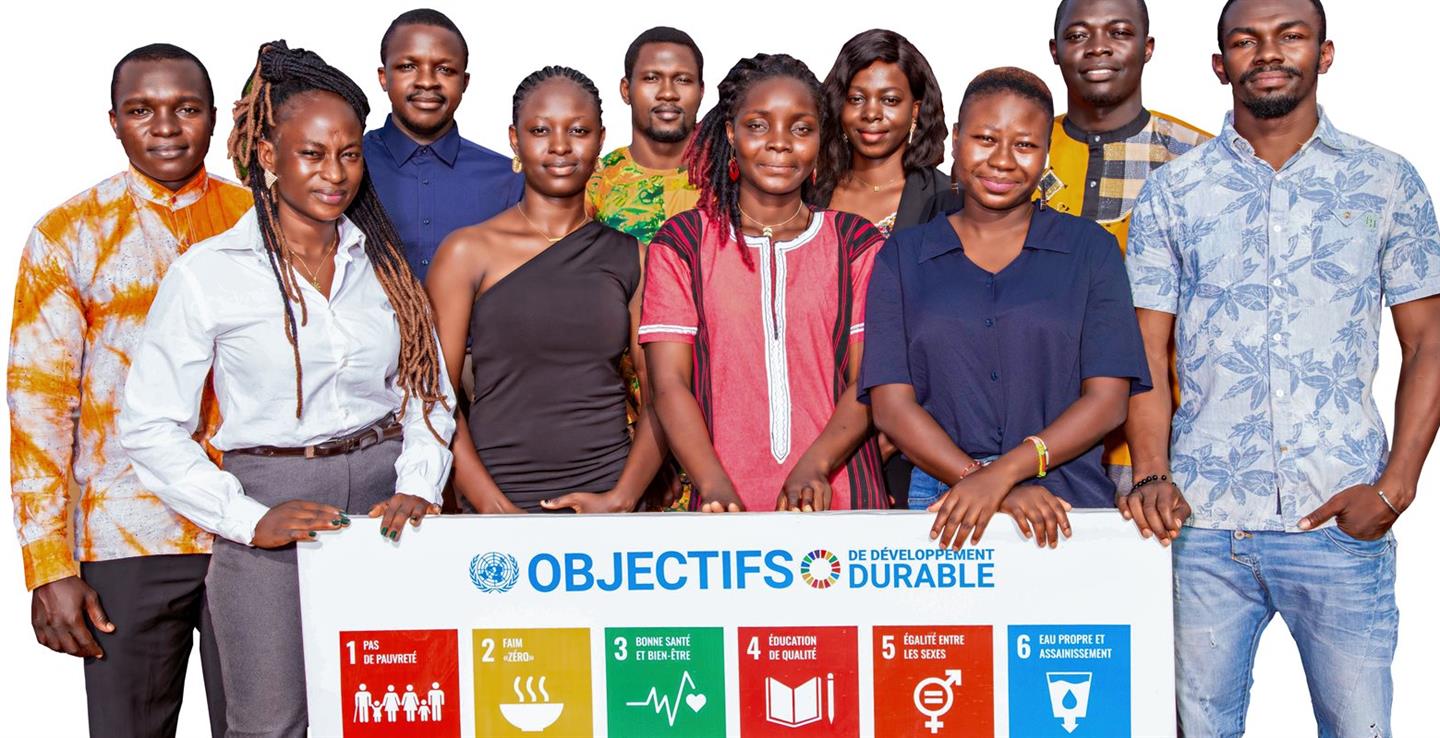
Burkina Faso youth negotiators demand climate justice
As the heat and water levels rise in Africa, so are youth activists rising across the continent to shift the terms of debate on what climate justice means to vulnerable communities in Burkina Faso.
Sesheta, Zarafilou, Dorkas, Dimitri, Sylvie, David, Risnata, Kévin, David and Safiatou are youth climate negotiators echoing the voices of millions of young people in Burkina Faso who are demanding climate justice in policies and practices that deepen climate finance, adaptation and just energy transition.
Oxfam in Burkina Faso partnered with Nationale des Jeunes pour l’Environnement et le Climat (CONAJEC) to strengthen the capacities of ten young climate activists who are founders of grassroot mobilization initiatives to contribute to the development of national policies on climate change.
For these youth climate negotiators, power sharing means that people most impacted by the climate crisis have the power to participate and influence decisions that affect their lives, and they never miss the opportunity to make their stance clear on what climate justice means for the people in Burkina Faso.
Strengthen locally led capacities on adaptation
"The increasing deterioration of the environment due to human action weighs on biodiversity and threatens the existence of future generations," said 27-year-old Dorkas Zonou, one of the national climate negotiators.
Adding to Dorkas' concern, David Couliba, another climate negotiator, noted, "climate pollution in Burkina Faso is becoming more alarming. From drought and desertification to food insecurity, water scarcity, increased temperature, loss of biodiversity, conflict, forced migration and vulnerability of pastoralists, climate crises are being felt in every part of the country. We need more support for adaptation if we must secure the future."
Both David and Dorkas have been rallying the call for locally led adaptive strategies, international support, a national policy framework and strengthening community resilience to fight the changing climate they are experiencing.
Increase climate finance
How can there be adaptation without financing? The consequences of climate breakdown are felt in all parts of the world and by most people, yet only the richest people and countries have the wealth, power, and influence to protect themselves. Young people believe that with that power comes huge responsibility. "Climate finance is an incredible basis for solutions to the climate change challenge of the century, and it is fair that rich polluters pay so we can strengthen locally led innovative solutions that help our communities adapt to a changing climate," said Kévin Nacanabo.
For Kévin, we must find the trillions needed for adaptation by making rich polluters pay and much more, climate financing must benefit frontline communities. Countries most vulnerable to the impact of climate change should be able to access grants or low interest loans to finance adaptation.
Energy transition must be just
“The transition to renewable energy must be sustainable, affordable and clean,” said Sylvie Somda. Countries must agree to implement a fast, equitable and just energy transition to keep warming below 1.5 C without false solutions that fuel inequality, harm human rights, farmers and food security.
These youth negotiators echo the voices of millions of people in Burkina Faso and vulnerable communities across the world to call on the richest people, corporations, and countries to provide low interest finance to African and Asian countries for a just energy transition.
“Climate change is like riding a motorcycle without a helmet. The more you accelerate, the faster you run towards disaster. We only have one earth, it’s time to review our actions.” Sesheta Zoungrana said.




